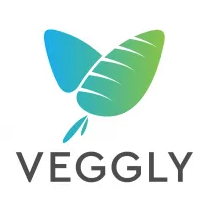- What’s vitamin D good for? And what are the vegan sources of vitamin D?
Vitamin D is a nutrient responsible for helping our bodies absorb and retain calcium and phosphorus, which are fundamental for building bones. Our nerves, muscles, and immune system all depend on vitamin D, and studies have shown that it can also help to prevent infections, reduce inflammation, and inhibit the formation of cancer cells.
You can get your vitamin through sun exposure and certain foods. The problem is that it can be hard to obtain the recommended amount of this vitamin, since only a few foods contain it naturally.
There is a discussion among scientists over the ideal levels of vitamin D for disease prevention and the daily recommended intake of the vitamin. But there are a few issues concerning this, it is hard to obtain this vitamin through food, for only some foods naturally contain it, and, for those who live in places with limited sunlight, it can be even harder to obtain it through that source.
According to nutritionist Laura Silva, who spoke to Veggly:
“We often receive exams from patients who, despite eating well, are still deficient in vitamin D and presenting symptoms such as fatigue, low mood, depressive symptoms. Especially after this long period of pandemic where sun exposure was much less than usual and necessary.”
That’s why it’s very important to keep an eye on your vitamin D levels.
- Vitamin D deficiency and toxicity
The vitamin D deficiency is more likely to occur in people who cannot eat or restrict the consumption of dairy, eggs, and fish. For example, vegans and those that are lactose intolerant.
It’s also important to be aware of the amount of supplements ingested. The vitamin D toxicity can occur due to a high intake of supplements. According to the Harvard School of Public Health, it’s not advised to take vitamin D supplements that contain more than 4,000 IU — unless it’s being monitored by a doctor.
- How to obtain the necessary amount of vitamin D on a vegan diet?
The National Institutes of Health recommends, for adults, 600-800 IU of vitamin D daily. It can be complicated to meet the daily requirement of vitamin D whilst on a vegan diet, but there are some foods and lifestyle choices that can help! Such as:
- Supplements
There are two types of vitamin D supplements: vitamin D2 (ergocalciferol) and vitamin D3 (cholecalciferol). The first is made from mushrooms exposed to sunlight, but the latter can be plant based or not, so it’s vital to look out for this.
According to Laura, “Often relying only on food sources hasn’t been enough.
With supplementation we can put the appropriate amount and bioavailability to reach the ideal dose.”
- Mushrooms
Mushrooms are the only naturally available source of vitamin D. They contain ergosterol, a substance that, when exposed to UV radiation, transforms into vitamin D2. The National Institutes of Health says that half a cup of white mushrooms that have been exposed to UV radiation can contain about 366 IU of vitamin D.
- Plant-based milk
Some plant based milks (such as almond milk, soy milk, rice milk, cashew milk) are fortified with vitamin D. One cup can contain 25% of the daily amount recommended. The only problem is that some brands don’t fortify their milks, so a double check may be necessary!
- Cereals
Popular cereals tend to be fortified with vitamin D. But a double check may also be necessary, for more natural brands tend to not fortify their foods. Granola and rolled oats also do not contain vitamin D.
- Orange juice
There are some brands of orange juice that fortify their products with vitamin D and calcium!
- Tofu
Some brands of tofu can offer, in their foods, up to 20% of the daily intake of vitamin D. The fortified tofu contains, besides vitamin D, vitamin B12 and omega 3 fats.
- Sunshine
The National Institutes of Health says that exposing skin to sunlight from 5 to 30 minutes a day, preferably in the morning, without SPF protection,without SPF protection, can get you the necessary amount of vitamin D. But it is necessary to pay attention to the amount (not enough or too much) of sunlight you are exposing yourself to and remember that different bodies have different vitamin D needs.
References:
- https://www.hsph.harvard.edu/nutritionsource/vitamin-d/
- https://ods.od.nih.gov/factsheets/VitaminD-Consumer/
- https://ayubmed.edu.pk/JAMC/25-1/Jawed.pdf
- https://timesofindia.indiatimes.com/life-style/health-fitness/diet/sources-of-vitamin-d-for-vegetarians/articleshow/16394014.cms
- https://www.vegansociety.com/sites/default/files/uploads/downloads/Vitamin%20D%20PDF%20v2_0.pdf
- https://www.imaware.health/blog/the-best-sources-of-vitamin-d-for-vegans
- Laura Silva, Postgraduate in Sports Nutrition, @nutrir_ssilva. (https://www.instagram.com/nutrir_ssilva/)
As Veggly grows further, make sure you stay up to date and read some of our success stories and messages from our users who found love from their Veg-Matches – all on this page here.
Stay up to date with all of our announcements, other news stories, blog posts, and recipes. Please follow Veggly across our social channels:





